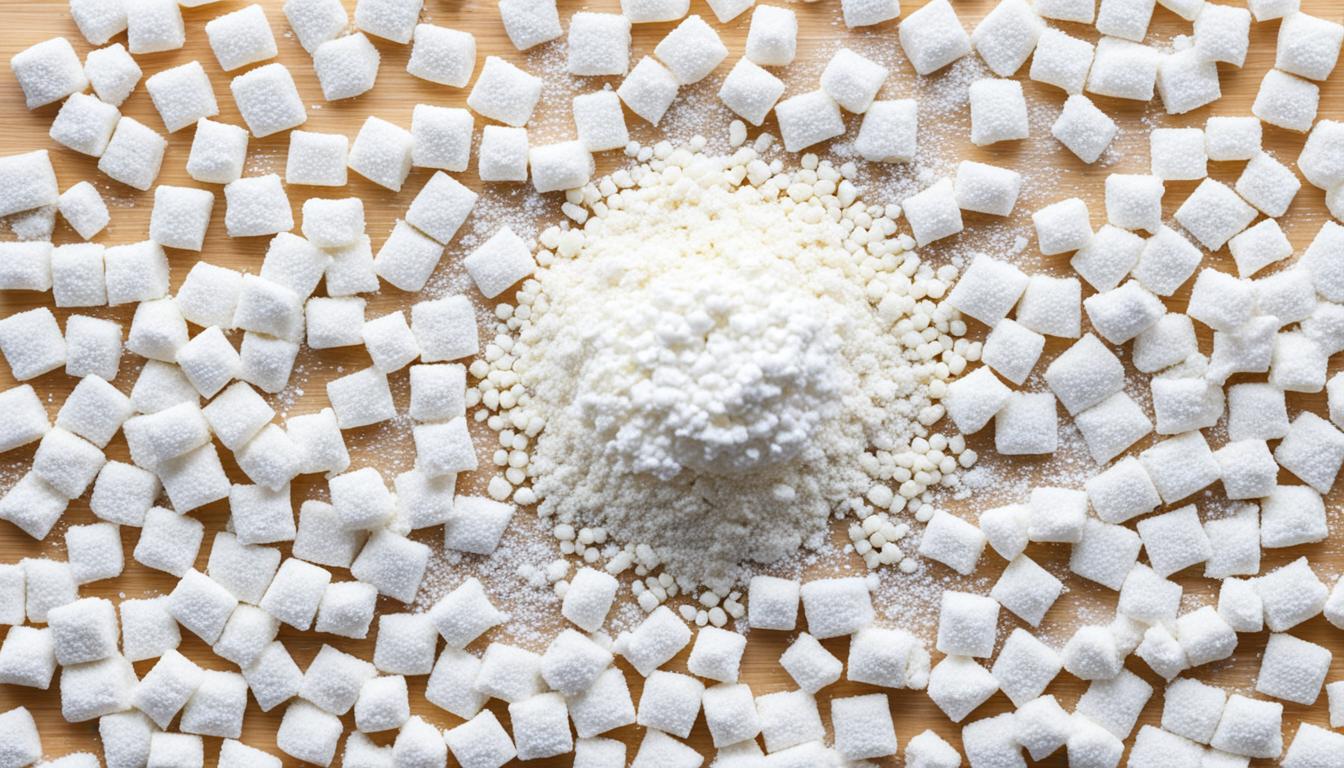When it comes to baking, the choice of ingredients can make all the difference in the final outcome. One commonly used ingredient that often divides bakers is powdered sugar. But did you know that there’s more than one type of powdered sugar on the market? It’s time to delve deeper into the world of baking and explore the differences between organic powdered sugar and conventional tapioca. Are you ready to discover which option sweetens the deal?
Baking is an art form, and every ingredient plays a crucial role in achieving the perfect results. In this article, we’ll dive into the world of organic powdered sugar and conventional tapioca to uncover their unique qualities and benefits. We will compare their taste, texture, advantages, and downsides to help you make an informed decision for your baking endeavors.
The Benefits of Organic Powdered Sugar
When it comes to baking ingredients, organic powdered sugar offers a range of benefits that set it apart from conventional options. Made from raw cane sugar, organic powdered sugar provides a more complex flavor profile compared to its conventional counterpart, and is therefore ideal for adding depth to sweet treats.
Due to its raw nature, organic powdered sugar retains minerals and flavors associated with molasses, further enhancing the taste of your baked goods and creating a more nuanced and less aggressive sweetness.
Unlike conventional powdered sugar, which can sometimes overpower desserts with its intense sweetness, organic powdered sugar has a more balanced flavor that helps to harmonize with other ingredients, resulting in a more enjoyable experience.
Moreover, choosing organic powdered sugar supports the use of organic and non-GMO ingredients in baking, aligning with environmentally conscious and health-conscious baking practices.
If you’re looking to elevate your baking creations and prefer a more refined sweetness, organic powdered sugar is an excellent choice. It lends a delightful flavor dimension to your favorite treats.
The Advantages of Conventional Tapioca Powdered Sugar
When it comes to powdered sugar, the conventional tapioca-based variety offers several advantages over its counterparts. One significant advantage lies in its presentation and storage properties. Conventional powdered sugar, which contains cornstarch, boasts a bright white color, making it an ideal choice for decorative purposes.
One of the key benefits of cornstarch in conventional tapioca-based powdered sugar is its resistance to moisture and clumping. Compared to tapioca, cornstarch is less absorbent and less hygroscopic, allowing the powdered sugar to maintain its structure and appearance for extended periods, even in high-moisture environments.
Another advantage of conventional powdered sugar is its crumbly texture. Unlike tapioca-based alternatives, which may require sifting to remove lumps, conventional powdered sugar clumps easily and crumbles effortlessly. This property makes it convenient to use in various recipes without the need for additional steps.
If you prioritize a non-clumping formula and resistance to melting, conventional tapioca powdered sugar is a reliable choice. It remains stable and maintains its desired properties, making it suitable for decorations, garnishing, and other applications that require sustained form and structure.
It is important to note that some individuals may find the chalky residue left by cornstarch in powdered sugar to be undesirable. However, if presentation and storage properties are your top priority, conventional tapioca powdered sugar is an excellent option to consider.
Choosing the Right Powdered Sugar for Your Needs
The decision between organic powdered sugar and conventional tapioca powdered sugar depends on your personal baking preferences and needs. If you primarily use powdered sugar for decoration purposes, sticking with a traditional cornstarch-based brand is recommended. Conventional powdered sugar has resistance to melting and non-clumping properties that make it ideal for sprinkling on desserts and mixing into royal icing.
On the other hand, if powdered sugar is frequently used as a base for buttercream, frosting, or glaze, considering an organic, tapioca-based powdered sugar is advised. Tapioca-based powdered sugar offers a silky mouthfeel, a mellow flavor, and the ability to thicken, resulting in smoother and creamier frostings.
In addition, organic tapioca-based powdered sugar is corn-free, making it a suitable option for those adhering to kosher dietary restrictions. However, it’s important to note that tapioca-based powdered sugar tends to be more expensive and may not be as readily available in local grocery stores. Hence, it may be reserved for special occasions or specific baking needs.
